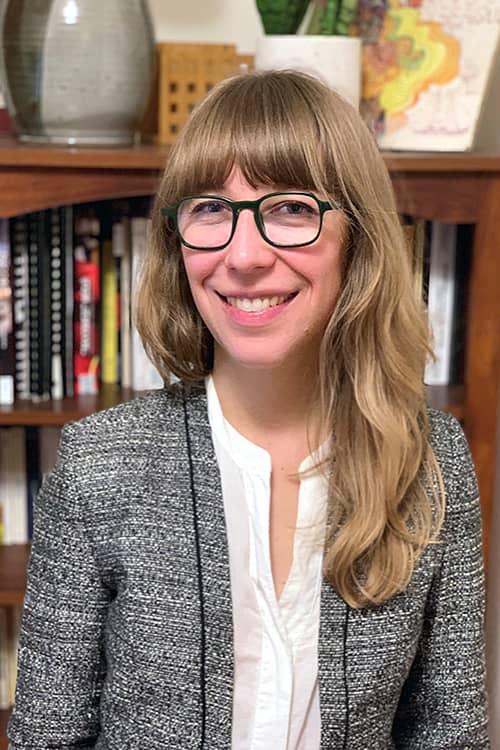
Hadley Galbraith, Ph.D. student, French & Francophone World Studies
Analyzes memory in movement
• Hometown: Topeka, KS
• Faculty mentor/advisor: Anny-Dominique Curtius, Associate Professor of Francophone Studies
• What is your degree program and expected graduate date? Doctorate, French & Francophone World Studies, Spring 2022
I am working with a philosophy called bigidi, which has been developed by Lénablou, a choreographer from Guadeloupe, from her study of gwo-ka dance. Bigidi is a survival strategy that relies on being constantly out of balance, which Lénablou traces back to enslaved communities on plantations in Guadeloupe. She sees it as a way of adapting to frequent unpredictable disruptions in one’s environment. I analyze manifestations of this strategy in writing, visual representation, and performance where descendants of enslaved peoples from the Caribbean and the Indian Ocean seek out memories of slavery’s resistance. I look at how writers and artists act out a process of “remembering” by activating their own bodily awareness or that of the reader or spectator while re-imagining bodily experiences of ancestors.
• In simple terms, why does this research matter? In light of the legacies that can exist in bodily practices like dance, it seems possible that when a descendant artist or writer engages bigidi in the creative process, it has the power to awaken a working sense of inherited strength from the past. My project aims to bring this to light, using a framework developed by a member of the community of descendants. It brings scholarly attention to ways of seeing and being that are traditionally ignored by the Western academy and helps us learn from these. I hope it will support greater cross-cultural understanding as well as introspection into our own practices of adaptation and remembering.
• How soon after starting at the University of Iowa were you able to participate in research?
I did my Master’s in the French & Francophone studies department here, and during the spring semester of the second year of my M.A. program, my advisor invited Lénablou to give a virtual conference to our class. I would say that is where my research started for my dissertation. I developed it the following year to present papers using bigidi as a framework for literary analysis at two conferences.
• How has being involved in research made you more successful at the University of Iowa? My research gave me a focus that I carried into foundational classes in my field, so I was constantly making connections between my work and the various realms of French and francophone studies. It has pushed me to take classes in the Dance, Cinematic Arts, and English departments which have broadened my foundations as a scholar. Finally, it has motivated me to seek out opportunities to interact with and learn from other scholars on the UI campus and beyond.
• What are your career goals and/or plans after graduation?
I hope to continue my research and to share my passion for the study of the body, writing, and performance in relation to memory with students, artists, and scholars.
• Does your research have connections to or implications for COVID-19? Please explain. While my research does not directly address the public health and economic challenges of the COVID-19 pandemic, the humanities have always been the place where we express and reflect on experiences big and small that change us as individuals and communities. I believe bigidi practice as witnessed in creative works provides a useful model to us as we are forced to adapt to our changing circumstances and, most importantly, take on questions of how to share our world as we rebuild from here.
Banner location: online—
